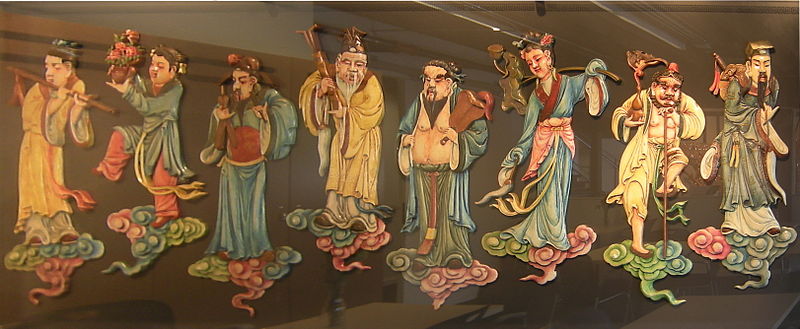History of the Empire
Creation of the World, People and the Kingdoms
The world began in formless chaos. Everything was mingled and nothing could be distinguished. But eventually the principles of Yin and Yang became perfectly balanced and divided and a great cosmic egg was formed. The egg hatched and the giant Pangu was born. The soaring Yang became the sky and the murky Yin the earth. To keep them separate Pangu lifted the heavens and stood upon the earth. Each year he grew ten feet and the sky and ground grew apart the same amount.
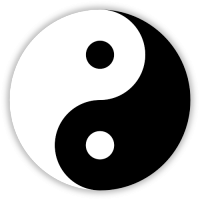 After 18,000 years Pangu had grown tired but the Heavens and Earth were sufficiently separated to remain so forever. Pangu lay down to rest and then he died. His last breaths became the wind and the memory of his voice the thunder; his body became the mountains and his ribs the ores of the earth; his blood was transformed to water and became the oceans and rivers and muscle the fertile lands. Finally his hair became the plants and the fleas on his skin the myriad animals and fish.
After 18,000 years Pangu had grown tired but the Heavens and Earth were sufficiently separated to remain so forever. Pangu lay down to rest and then he died. His last breaths became the wind and the memory of his voice the thunder; his body became the mountains and his ribs the ores of the earth; his blood was transformed to water and became the oceans and rivers and muscle the fertile lands. Finally his hair became the plants and the fleas on his skin the myriad animals and fish.
The gods came forth from the cosmic principles that had created the world, but there were no humans and they heard no prayers. So it was that Nuwa, the snake goddess daughter of the Jade Emperor, took yellow clay and from it molded the first people. She breathed into them life and the ability to bear children and they spread from Chi'in to all the world. To a few she taught martial arts so that beasts and demons should not extinguish the new people, and so it is that the martial arts are older than writing or fire or the first child.
And the lives of the first humans were not easy, for Heaven was young and many of the gods were ambitious and those who would be called demons bided their time to reveal themselves. Dragons, demons and gods walked the earth and fought and prayers flowed to Heaven in ceaseless multitudes as the people clamoured for salvation. The Jade Emperor sat on his throne and pondered.
As he considered the Water God and the Fire God fought as was their wont, and the rivers rose and the forests burned. This time the Water God won and in his rage the Fire God struck his head three times against one of the Four Pillars of the Heavens. On the third blow it cracked and broke. The whole heaven shifted and the earth fell and all was chaos throughout the realms mortal and divine.
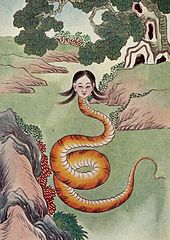 Nuwa, who had created the people, cried out and she slew the Giant Turtle whose carcass became the islands of the East. She took the Turtle's leg and used it to prop up the sky, but it was too short and so it is that all rivers flow to the southeast.
Nuwa, who had created the people, cried out and she slew the Giant Turtle whose carcass became the islands of the East. She took the Turtle's leg and used it to prop up the sky, but it was too short and so it is that all rivers flow to the southeast.
The Jade Emperor was wrath and in his anger he decreed that a third realm be created, beneath the Earth, far from Heaven. He cast the Fire God into the depths as the first to be punished there and so it is depths of the Earth are hottest and that Hell lacks not for boiling cauldrons. Nuwa was afraid, but she approached her father and pleaded for humanity. The August Personage of Jade loved his daughter well and so he promised that every man and woman should have the certainty of knowing that they would not be forever punished in Hell but should be reborn when their sins were paid for.
Heaven and Earth found new peace as the demons and unprincipled gods were sent to Hell, or were cowed by the fear of so being.
Floods came but not so often, and fires burned the forests but more seldom and humanity prospered under the order of the Jade Emperor. Three kingdoms rose in the lands of Chi'in, the most favoured and prosperous of lands, but the people had not been born in peace and soon they cast it aside. Shu warred with Wei that fought Wu that battled Shu. For generations the people suffered strife until once again the Jade Emperor moved his hand.
For as in Heaven, upon the Earth only one could rule the Three Kingdoms.
Rise of the Empire
Legend has it that in the Kingdom of Wu there lived a general named Song Gi. He was famed, not only in Wu, but also in Wei and Shu for his bravery and martial skill. In these times, Wu was faring poorly in the eternal wars that raged between the Three Kingdoms. When the King of Wu took ill and died, leaving no heirs behind, the nobles of Wu feared that their Kingdom was at an end.
The night the King died, Song Gi had a dream. He dreamed he was in Heaven, dining with the August Personage of Jade. The Celestial Emperor himself turned to the lowly General and said thus: 'Song Gi, the heart of my daughter Nuwa weeps to see her children wage war against each other. I give you now my blessing, that you should unite the Three Kingdoms and forge a lasting peace, such that neighbours no longer wage war on each other.'
Song Gi assembled the nobles of Wu, and stated his case. Fearing for their safety, they entrusted the care of their nation to this mighty general, who was named the new King of Wu. The blessings of Heaven are powerful indeed, and in less than a year, the fortunes of Wu had turned. What had so recently been the weakest of the Three Kingdoms found itself winning every battle. In a matter of months, the armies of Wu had conquered mines in Wei and fields in Shu. The Kings of Wei and Shu dared to defy the will of Heaven, and plotted a union to crush the resurgent Wu.
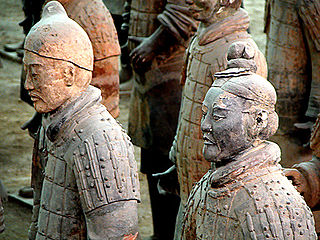 Meanwhile, the Horse God, greediest child of the August Personage of Jade, traveled North and came upon a tribe who did not worship the Celestial Emperor. He offered them his blessing, that they might wage war on weakened Chi'in and take the fertile lands for themselves in his name.
Meanwhile, the Horse God, greediest child of the August Personage of Jade, traveled North and came upon a tribe who did not worship the Celestial Emperor. He offered them his blessing, that they might wage war on weakened Chi'in and take the fertile lands for themselves in his name.
And so it came to be that at the Plum Blossom Cliffs, the armies of Song Gi were met by the combined forces of Shu and Wei. While the battle raged, there came pouring from the North the hordes of barbarians. But it is not for mortal men to defy the Will of Heaven, and it is not for the Horse God to defy his Divine Father's Will. On that day, so much blood was spilled that the Cliffs were forever stained red. Song Gi's forces crushed the other three armies. The horsemen of the north fled beyond the mountains to their frozen wastelands. For his defiance, the Horse God was banished to the frozen North by the Highest Lord. The Kings of Shu and Wei saw the folly of their hubris, and proclaimed Song Gi the true Emperor of the land of Chi'in.
The Winter of Sorrows
The Empire of Chi'in, under Song Gi and his progeny, flourished. As the years passed, and Emperors lived and died, their rule became increasingly tyrannical. Corruption among the officials became endemic. The glorious armies that had united the land of Chi'in were turned inwards, in order to contain the growing discontent among the populace.
Nine generations after the Battle of the Vermillion Cliffs, the Imperial Army was fractured. Soldiers of Wu taxed peasants of Wei. Forces from Wei crushed a rebellion in Shu. Legions from Shu sacked temples in Wu. The Army began to fight the people.
The Winter of Sorrows marked the beginning of the End for the first Empire. The Ninth Song Emperor had emptied the Imperial Treasury on lavish palaces in the Capital, and demanded ever more taxes from his subjects. His inability to pay the Army regularly led to growing discontent. When Heaven turned away from him, the prayers of the Priesthood were no longer heard. The local gods of villages and streams, of rain and harvest no longer answered. In the Empire of Chi'in, that winter was the harshest since the men and women of Chi'in were given the tools with which to keep records.
The people, starving and opressed, revolted. The Army, sullen and aggrieved, splintered. That winter, the Imperial Capital and the Imperial Family burned. When spring came, the land of Chi'in had been carved up by a hundred territorial warlords and bandits.
The Empire Restored
Another spring came, and another, and another again. The land of Chi'in remained gripped by chaos. In Ao Liang came together the men and women who had laboured and failed to prevent the fall of the Empire. From the ashes of the Song Dynasty rose an Order, dedicated to the restoration and preservation of the Empire of Chi'in. For seven times seven years, the men and women of the Order of the Chrysanthemum strived to restore peace.
In those days, the Queen of Shu was Zhao Huang, and in her the Order of the Chrysanthemum saw their hopes for the Empire made flesh. Around her the Order rallied. As the years went by, peace came to the land of Shu. The queen and the Order strove to improve the lands of the peasantry, and little by little, Shu prospered. More and more, the lands surrounding fell to Shu as individual bandits and warlords could no longer afford to compete against such an organised force. When all was done, the Queen of Shu had united the Empire without relying on might of arms.
The new Empire prospered. Canals were built, rivers diverted, marshes drained. The land of Chi'in became more prosperous and bounteous than ever before. The Empress of Chi'in built institutions and public works that would benefit the people of Chi'in. The sciences and the arts flourished. From these days date the legendary 'Travels of Master Kong,' who walked the length and breadth of the world, and countless innovations in medicine and martial arts. The new Empire of Chi'in enjoyed all the blessings of Heaven.
With peace restored, the Order of the Chrysanthemum devoted themselves to other pursuits. The Horse God in the north plotted. In the south, dark things moved in the jungles. The Order sent its best and brightest to map the world and the realms of Heaven and Hell. Unfortunately, they came back changed.
The Eight Skilled Gentlemen
On the subject of the rule of the Eight Skilled Gentlemen, only the following Extract from Lao Zhu's The Art of Wu Wei remains in circulation. All other works detailing this time in the Empire's history have been declared banned by the Ministry of Culture.
[…] “Who will now rule Chi'in?”, the Duke of Shu demanded. Though the Duke had been healed of his disordered chi by the great Doctor, he still stood a comedic figure in the enormous tent-like robes that had barely concealed his former girth. Bitter in his mouth were the perfect flavours he now knew were washed down with the tears of his subjects, and of the meat the Doctor had sworn on the throne never to speak. Ignored, despite his rank, he struck the iron cookpot covering the head of his wicked cook Great Belly Lao a mighty blow so it rang like a great gong. “A woman who can heal the sick can heal an empire!”
“We need a great warrior to protect the Kingdoms,” the Prince of Wei announced as he batted his eyelashes at the blushing Spearman. Clad once again in his heavy black armour, strength and resolve seemed to flow up from the hand that held tight to the hilt of the sword on the Prince's belt. Never again would the languid drugs of the malevolent Torpid Snake rob him of his resolve now that the Spearman had roused him. “Strength and speed are the key!”
“Nonsense! Only a man of intellect can guide the government,” the Queen of Wu proclaimed. The lies and silvered words of Fawning Gao seeped through her memories like poison, but the cunning arguments of the Philosopher had taught her to see through them as easily as the lies of children. “Never again can we allow ourselves to be tamed and bridled by calamitous advisors!”
So the great company of nobles fell to arguing in the high Hall of the Dragon Throne even as the Eight Skilled Gentlemen who had conspired to rule and ruin Chi'in from the shadows languished in chains. Factions quickly formed, each championing for the title of Emperor a different candidate from the companions that Chang had gathered to defeat the Eight. Amongst the prisoners Honeyed Pei smiled an evil smile; for as skilled a politician as he need only speak for seven times seven heartbeats to turn such argument to violence. And Lightning Meng at a glance understood and shivered with anticipation of the blood to be shed, for any sword or blade that passed within ten feet would be his to command as if he held it himself. Soon the Eight Skilled Gentlemen would be free amongst their enemies…
But the companions gathered around Clear-Eyed Chang and as one they stamped their feet for silence. “Though I am a master of every martial art with palm open or closed I could not have bested Meng without the example of Chang,” the Monk spoke into the silence. And each of the companions related how they had bested one of the Eight Skilled Gentlemen, but more how Clear-Eyed Chang had given them purpose. And, so, though she had not acted against the Eight she had still defeated them. This is Wu Wei - the art of action without action or effortless doing.
And when they had spoken, the Duke of Shu and the Prince of Wei and the Queen of Wu looked one to another and then they bowed deep and low to Clear-Eyed Chang. The ground swallowed the Eight Skilled Gentlemen and all understood that Heaven had opened once more, and with the Mandate of Heaven revealed the lesser nobles kowtowed before Empress Chang. And her rule was like the North Pole; she did not move but all revolved around her and such was the proper way of things.
The Third Dynasty
With the impious actions of the Immortals still a sore wound, the Third Dynasty was characterized by the dominance of the Imperial Priesthood. The Chang Empresses lived as virtual nuns, taking but a single husband in order to perpetuate the Dynasty. So great was the piety of the Imperial Household that Chang-O, goddess of the moon, descended to inform the Empress that the improprieties of the previous age had been forgiven. The Empire under the line of Chang marked the closest it has ever been in the affections of Heaven. Priests and Gods regularly communed, and the blessings of the divine ushered in an age of prosperity for the Empire.
Empress Chang Hu began the dynasty's return to temporal matters when she fell in love with the High Speaker. Three times he spurned her advances before she ordered his execution. The next High Speaker was a childhood friend of the Empress and together they placed the reins of power back in the hands of the Ministries.
After 9 Empresses, the line passed to Emperor Chang Lin, a kind but ineffectual ruler.
The War of Jade
After the death of Emperor Chang Lin left no direct descendants, the throne was to pass to either Shen Sui or Fang Guo, both cousins of the Emperor. Both claimed the right to rule and neither would yield. Shen Sui took control of the Imperial Army in the capital, while Fang Guo raised militias from the Province of Shu supported by mercenaries from outside the Empire.
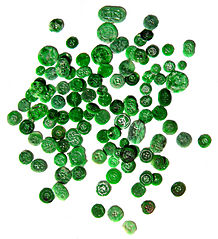 The War of Jade lasted four years, as the Imperial Treasury and the personal fortunes of the nobles of the Imperial court were spent on the forces that devastated the land of Chi'in. In the end, at Ao Liang, Shen Sui and Fang Guo dueled for a week, until Fang Guo was at last defeated by Shen Sui's flying blade.
The War of Jade lasted four years, as the Imperial Treasury and the personal fortunes of the nobles of the Imperial court were spent on the forces that devastated the land of Chi'in. In the end, at Ao Liang, Shen Sui and Fang Guo dueled for a week, until Fang Guo was at last defeated by Shen Sui's flying blade.
Gal Khan, warlord of the north and chosen of the Horse God, united the tribes and took advantage of the confusion by marching south with a great horde intending to conquer the fertile lands of Chi'in. He laid siege to the Imperial Capital after razing much of Wu. The forces under Shen Sui marched with all haste and met the horde outside the capital. Shen Sui, having acquired the Mandate of Heaven, emerged victorious. The tribes scattered throughout the Empire of Chi'in, ravaging and pillaging as bands rather than an organised force. Gal Khan himself was hounded for days by the Order of the Black Lotus, and on the border of Wu, was captured. The coronation of Empress Shen Sui was celebrated by his execution.
The Reunification
The province of Shu was still declared to Fang Guo, whilst the province of Wu had just been ravaged by the rampaging Gal Khan and was still occasionally ravaged by barbarians. With the empire on its knees, Shen Sui was forced to buy Shu's loyalty by offering Fang Guo's cousin the position of Imperial Treasurer. Pushing the barbarians out of the Empire would prove to be a more difficult proposition. Exhausted from the wars, the Imperial Army was in no position to fight a war of attrition against the remaining barbarians in Wu. It took ten years for the province of Wu to finally be made peaceful once more.
The damage done by the rampaging horde had galvanised the Empire against a common enemy, and it began the long road to reconstruction. It was during this period that the isles of the East were first discovered. Foreign trade began to boom. The Imperial school of artificers was also set up, and large scale industrial manufacturing first took off, most notably to provide the arms and armour for a newly revamped Imperial Army.
With the death of Shen Sui, the throne was inherited by her son Shen Zhou, a cunning bureaucrat who built the Mercantile Guild into the mighty force it is today.
The Empire Today
Seven Shen Emperors and Empresses have come and gone. The Empire is stronger than it has ever been, but diviners predict dark days ahead. The Emperor, Shen Lei, is known as 'Cursed' Lei. His three daughters and three sons all perished, and with no heir to take the throne on his death, the Empire is bracing itself for a new civil war. The power of the Shen line has gradually been eaten away by the regional interests of the Provinces and the Ministries, and few believe that Emperor Lei still rules in anything but name.
Priests are having trouble making themselves heard by Heaven. To the north, the barbarians gather anew, plotting to take the lands of Chi'in for themselves. In the south, dark things move in the jungles. The foreign powers of the west bring with them change for Chi'in. Dark days are ahead.

